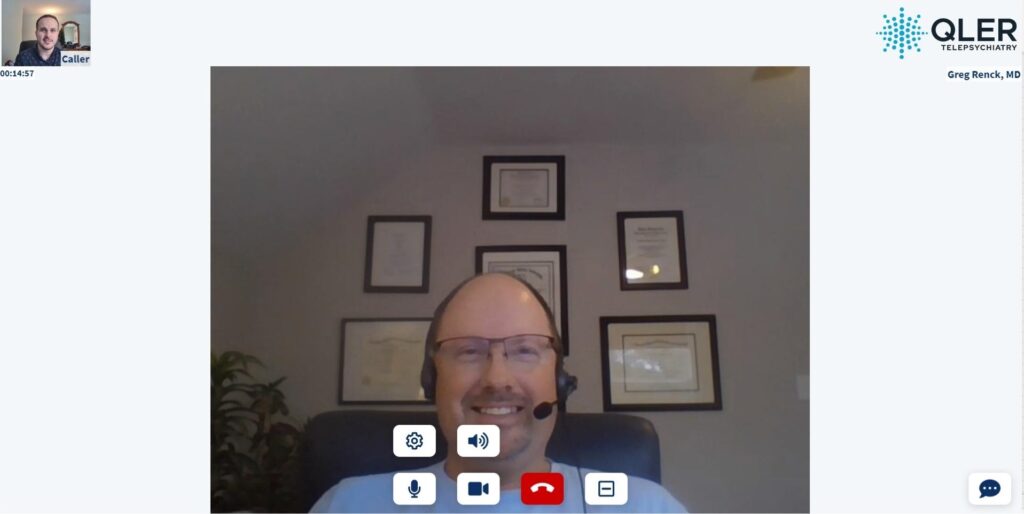Source: Lindsay Pride, Herald-Citizen
Every day, approximately five people who need psychiatry services visit Cookeville Regional Medical Center‘s emergency room, according to hospital COO Buffy Key.
This week, a telepsychiatry program launched at CRMC to assist those patients, a move that is expected not only to get those patients more quickly into treatment, but also free up space in the hospital’s busy emergency room.
“When they come in the ER, we do a medical screening assessment,” Key said. “We’re not mental health professionals. If that (psychiatry screening) is deemed necessary by physicians, they reach out to a private pay situation in Murfreesboro, Nashville, Memphis, or a place like Moccasin Bend (in Chattanooga), state facilities. There are many times in those situations where they get put on a list and I’ll be told I have three mental health patients in ER, and two are number 45 on the list. They’re waiting for that mental health screening, and we take care of them until that happens.”
In August, the CRMC Board of Trustees agreed to spend an estimated $500,000 annually with a psychiatry telehealth vendor, QLER Telepsychiatry.
QLER President and CEO Frank Johnson previously worked as a hospital chief operating officer.
“I came to QLER to solve the problem,” he said. “You’re talking about a hospital leadership team that has seen a problem and has decided to take a proactive approach. We work everywhere from downtown Detroit to rural Wyoming. The difference is certain hospitals and their leadership teams want to make the ER faster, take better care of patients.
“What happens all over the country, as you know, our emergency rooms are kind of a community resource, and all sorts of individuals end up in the ER,” Johnson said. “QLER was formed specifically to use the telehealth or video platform, 24 hours a day, seven days a week, 365 days a year, so no patient has to wait 10 hours or 12 hours for a psychiatric consult.”
QLER has about 25 psychiatrists, including Chief Quality Officer Dwayne Narayan, from all over the country who can evaluate patients.
“Many people have psychiatric needs that are unmet,” Narayan said. “They go to the emergency room for a different reason or that primary psychiatric need. They (ER doctors) will make a quick referral, call us on the computer, and we’ll do a consultation right then. What we’ve done is narrow down a two-month wait time or a four-month wait time down to one to two hours.
About 50% of the patients seen by QLER psychiatrists can be placed on medication, according to Narayan.
“We might recommend the patient go to inpatient,” he said. “Fifty percent of the time we might end up in that boat. Fifty percent of time they don’t have to go to an inpatient facility. If we had a psychiatrist we could send them to, we still can send them to a private family doctor, start medications. We have a lot more power, whereas the old days, you have to send everyone to a facility when they come in for a psychiatric reason.
“Rather than waiting for days, the quicker you can diagnose and treat, the quicker the patients are going to get better,” Narayan said.
CRMC CEO Paul Korth said, “We feel that this will save in resources and be able to allocate those resources to appropriate places they’re needed. I feel it’s going to be a cost saver for the hospital. It is an expense, but we’ll save more money than we’re spending and be able to get patients out of the hospital quicker.”
Johnson said QLER also has an outpatient psychiatry program available if they identify the same psychiatry patients frequently visit the hospital’s emergency room.
“If we identify a set of people who come to the ER over and over because they don’t have a psychiatrist, we can set up a program to get them outpatient treatment,” he said. “That’s something we do over the long term with our partners.”


